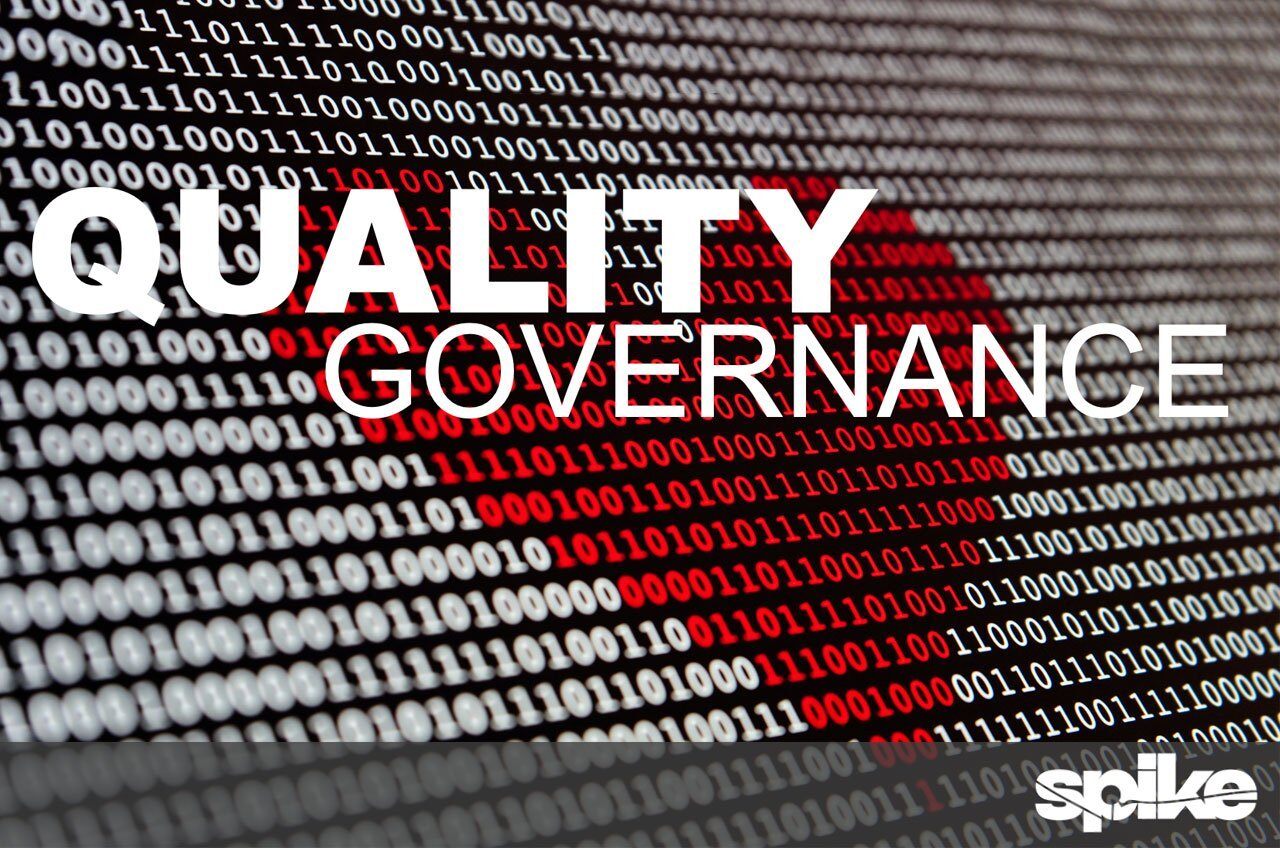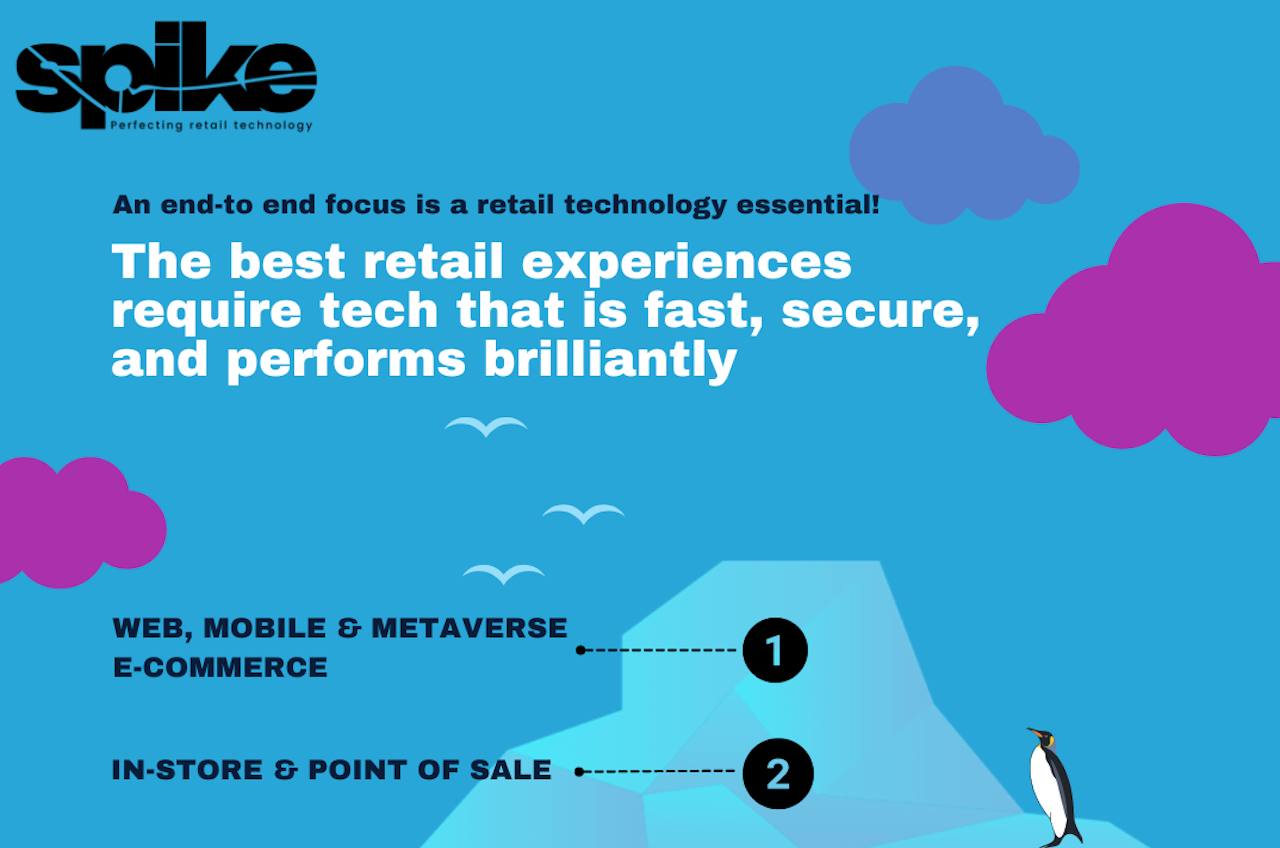Bringing Retail Technology To Life - Assurance & Confidence
Bringing Retail Technology To Life - Assurance & Confidence Our role is to bring retail technology to life, which in short means providing confidence...

In our last article, we talked about how it was essential that quality is built-in not bolted on. It is key to establish your quality vision to get it right at the start, so you can effectively plan the stages and measures required to ensure quality and performance from end-to-end.
[vlt_post_quote_block text="“Quality is never an accident. It is always the result of intelligent effort.” John Ruskin - English writer, philosopher & art critic" css=".vc_custom_1684483406690{background-color: #e04e99 !important;}"]For some the word governance has connotations of audit, paperwork, and unnecessary hoops to jump. At Spike we see ‘Quality Governance’ as essential to ensuring we're making things happen. It is a dynamic process that drives your transformation forward.
Whilst structure and order have their place, we do what we know works to balance structured process and real insight into whether we're on track to deliver the vision. Pragmatism is key!
Quality Governance is critical in a retail technology transformation program for several reasons.
1. Your technology transformation program involves significant investments in time, money, and resources. Without good governance, there is a risk that the program may not deliver the expected outcomes, or worse, it may fail completely. Data from apty.io tells us that only around 30% of businesses successfully manage a digital transformation. Giving governance investment reduces that risk exponentially.
Start with a clear framework for decision-making, risk management, and accountability. This helps to ensure that all quality management activity is aligned with the programme or project's strategic goals, and that risks are identified, assessed, and managed appropriately.
Effective quality governance also provides a mechanism for monitoring progress, tracking performance, and adjusting as necessary to keep the program on track.
2. A technology transformation program typically involves significant changes to business processes, systems, and organisational structures. Without good quality governance, there is a risk that the quality management effort focuses simply on the technical side and not delivering to the real business drivers.
Governance ensures that all stakeholders are engaged and informed throughout the program, that communication channels are open and transparent, and that change management processes are in place to address any resistance or issues that arise.
3. These programmes involve complex technical issues, such as system integration, data migration, and cybersecurity. Without good quality governance, there is a risk that these issues may not be effectively managed, leading to delays, cost overruns, and potentially, security breaches or data loss.
An effective approach ensures that technical risks are identified and managed, that technical expertise is available to support the program, and that appropriate testing and quality assurance processes are in place to ensure that the system is secure, reliable, and performs as expected.
4. Finally, a technology transformation program will have significant impacts on customers, suppliers, and other stakeholders. According to the Digital Marketing Institute, 27% of businesses feel digital transformation is a question of survival, but without good quality, governance to provide effective information to the wider programme, there is a risk that these impacts may not be effectively managed. This can lead to reputational damage, legal and regulatory issues, and potentially, loss of business.
Effective quality governance needs to understand stakeholder impacts, provide timely information for end-to-end decision making and aid confidence in those making the final go or no-go decisions.
According to Fujitsu, the key drivers of digital transformation in retail include greater competitiveness, with 70% rating high or very high significance, 69% better efficiency and cost savings, 69% stronger customer interactions, and 67% increased revenue. On the flip side, 55% of businesses without a digital transformation feel they have less than a year before losing market share.
It is essential to get your transformation right so by providing a clear framework for decision-making, risk management, and accountability, excellent quality governance helps to ensure that the program delivers the expected outcomes and achieves its intended benefits. This also establishes good practice for future change once your transformation has gone live.
At Spike we focus our approach to Quality Governance on three key pillarsA GOVERNANCE FRAMEWORK - Start with a clear direction and a holistic focus on delivering the highest possible quality.
RISK MANAGEMENT - are we clear on the real risks? Are people raising risks that truly exist or just to cover other failings? Are we assessing risk based on full and clear information & open discussion?
VALUE DELIVERY - your framework should establish fast feedback mechanisms - this isn't a discussion over whether one methodology triumphs over another, it's just a good common-sense practice.
These are some of the key areas we consider inside these pillars:Whether it's creating a clear strategy, managing quality governance, or mapping out a cohesive digital transformation plan, there are frameworks that can be applied across many business models to ensure success. Although each project is unique, there are similarities like those we have shared with you to help efficiently implement the best way forward.
So, take our advice, get your vision right at the start and understand that governance will play a crucial role in enforcing those decisions.
Author: Steve Dennis, Executive Director, Spike.
________________________________________________________________________________
Stat sources
https://www.apty.io/blog/digital-transformation-statistics/
www.information-age.com

Bringing Retail Technology To Life - Assurance & Confidence Our role is to bring retail technology to life, which in short means providing confidence...

The retail technology iceberg illustrates the complex landscape of retail tech.

To quote Top Gun: “I feel the need … the need for speed!” This is what every business and IT leader should be thinking about when it comes to...